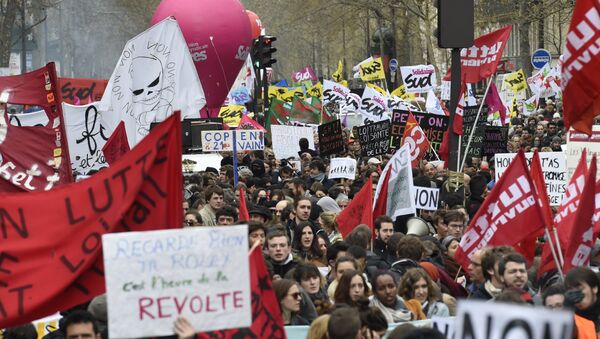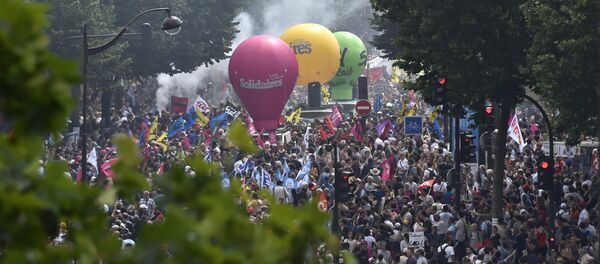Despite all the hardships, French workers fighting for their rights gain support from the rest of the nation.
“The French are ready for inconvenience in order to support workers’ struggle,” he said of the public’s perception of the situation in the country. “Nearly 70% of French are for Hollande to pull back the [Labor reform] law and stop his policies. Some 55% of the population supports the strikers.”
Reba explained that solidarity among the French people is conditioned by a strike culture that formed through a series of general strikes that took place throughout the 20th century. The 1968 national strike that nearly brought down the government, for instance, helped to shape the “collective legislation” and the “collective consciousness.”
As a result of those protests, the public won the right to express solidarity in support of those on strike, something that is outlawed in many countries. In the US, for instance, people can be persecuted for supporting protest movements.
“In France, it’s a part of our culture to come together from all sectors, all parts of our country in the same time in the same place [to go on strike],” he said.
Commenting on the Brexit referendum in the UK and its possible implications on the future of France, Reba said that the mass protests in the country are unlikely to result in a similar departure from the European Union. French workers aren’t opposed to the idea of the EU, Reba said.
“We don’t fight against Europeans; we fight for the interests of the workers’ class. They use neoliberal politics in the EU to break up rights of the workers, our way of life and our level of life.”




